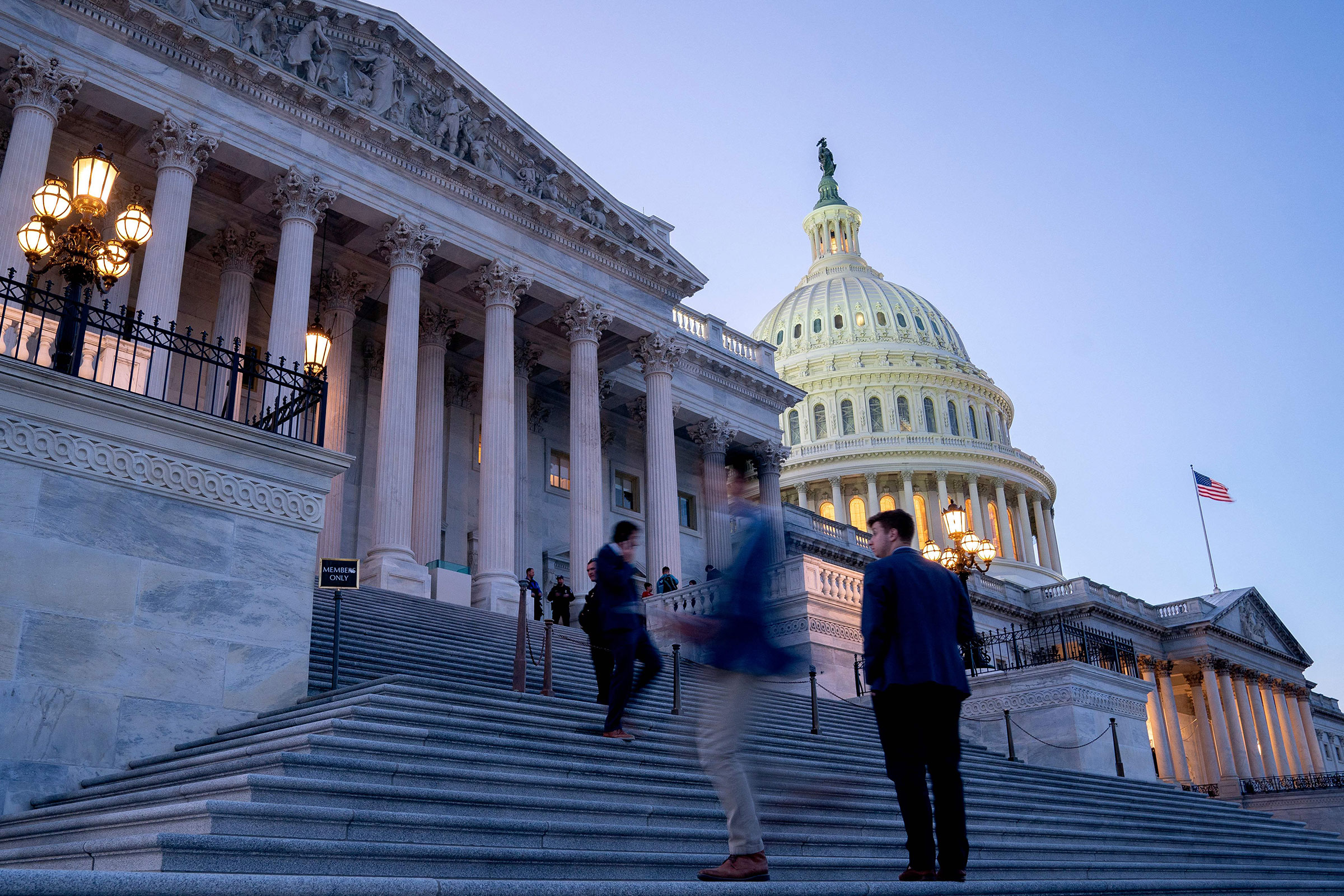
This article is part of The D.C. Brief, TIME’s politics newsletter. Sign up here to get stories like this sent to your inbox.
In the weeks that followed twin overtime wins in Senate races in Georgia, it looked like the Democrats’ unexpected victories would condemn Washington to unrelenting gridlock. The Senate in January of last year arrived split 50-50. Kamala Harris’ tie-breaking vote wasn’t the way to resolve a power-sharing agreement. And it took Republicans and Democrats a full two weeks of negotiations—creeping into February—before they finally reached an understanding about the rules that would govern Capitol Hill for the two years.
To say many in Washington were skeptical that much could be done in the beginning of Joe Biden’s first term would be an understatement. D.C. is not a place that rewards compromise. A large chunk of the Republican base considers any dealmaking to be betrayal and believes political violence can be justified. And, on the left, a rowdy progressive wing was already starting to whisper about primary challenges to anyone who dared meet in the middle, including persistent buzz about taking out Majority Leader Chuck Schumer and active campaigns for further left candidates in battleground districts. Staking out a position and sticking to it—regardless of outcome or fairness—is a sure way to get noticed in politics these days.
Yet somehow, Congress has been getting things done. Despite the environment and its players, things actually are crossing Biden’s desk for his presidential signature, especially when it comes to Ukraine. Politico dubbed it this week “Schumer’s Senate shocker.”
There is evidence to back that up, even if most on Capitol Hill have their own litany of asterisks to attach to the factsheets. An early COVID-19 relief package cleared Congress during Biden’s first 100 days (though no Republicans voted for it). In March, Democrats finally passed an anti-lynching law that had been delayed more than 200 times over 120 years. Last week, Congress reauthorized the Violence Against Women Act as part of massive, must-pass spending plan. And next week, the Senate will start work on sending the first Black woman to the Supreme Court.
For most administrations that would be considered a win. But promotion-averse Biden isn’t out taking victory laps by any stretch, meaning voters aren’t seeing it. Almost half of independent-minded voters (46%)—the folks in the middle who decide this fall’s midterm winners and losers—give Biden a D or an F on bipartisanship, according to a Morning Consult poll for the Bipartisan Priority Center last month.
That isn’t to say that Biden’s getting everything on his wishlist through a Congress that gives his fellow Democrats the thinnest of majorities. Even nominal allies inside his party are unreliable. Longtime pals in the other are intractable. His infrastructure and social-safety ‘Build Back Better’ agenda is pretty much dead at the hands of aggressively centrist Sen. Joe Manchin of West Virginia. Several of Biden’s nominees have been spiked, including his pick for the Federal Reserve just this week because of Manchin’s worry she sees the economy and climate crisis as interconnected.
Part of the limit on Democrats’ success is the filibuster, a Senate tradition that requires 60 Senators to say they’ve heard enough debate and are ready to vote. Without 10 Republicans joining a unified Democratic front, a single lawmaker can shelve the final vote. Biden broke with his own long history of defending the filibuster earlier this year for a specific voting-rights bill. Lawmakers in his party in January—many of whom quietly wanted to preserve the pocket veto should Republicans reclaim their majority in fall’s election—still stood behind Biden. Life would get much easier without needing 60 votes for most of the agenda.
But two Democrats voted against changing the filibuster rules, dooming much of Biden’s remaining agenda. Which is why Politico’s assessment—and Schumer’s boast of getting more done with 50 votes than Republican Leader Mitch McConnell accomplished with 53 votes—misses a major caveat. Keeping the lights on isn’t nothing, but that’s pretty much the bare minimum the public expects Congress to accomplish. (Sometimes, even that has been a white-knuckle final push, though.)
For big-impact promises without a filibuster rewrite, Democrats still have to find 10 amenable Republicans, and they aren’t exactly rushing to compromise. Democrats found them for the Violence Against Women Act renewal, and they might harangue them again on a drug-pricing bill or an electoral integrity plan. But to claim Washington is working in its most efficient way ignores this unfortunate reality: most Republicans feel handing any marginal victories to Biden can hurt them with their own voters.
Polls show Democratic voters are more likely to find compromise an appealing quality in a candidate, with 31% of Republicans telling that Bipartisan Policy Center/ Morning Consult poll last month that they’d reward candidates who stuck to their position and pushed the party line, a view shared by 23% of Democrats.
This explains just how afraid Republican lawmakers are of the people who elected them—the same people they will need to appease if they want to keep their jobs. Republicans can vote to keep the lights on. Most, however, probably can’t vote to power them with green energy, because that would be a step too far for the base, and they know it. Welcome to the Age of Government by Fear.
Make sense of what matters in Washington. Sign up for the D.C. Brief newsletter.
More Must-Reads From TIME
- The 100 Most Influential People of 2024
- Coco Gauff Is Playing for Herself Now
- Scenes From Pro-Palestinian Encampments Across U.S. Universities
- 6 Compliments That Land Every Time
- If You're Dating Right Now , You're Brave: Column
- The AI That Could Heal a Divided Internet
- Fallout Is a Brilliant Model for the Future of Video Game Adaptations
- Want Weekly Recs on What to Watch, Read, and More? Sign Up for Worth Your Time
Write to Philip Elliott at philip.elliott@time.com